Jello has been a long-time favourite among children and adults alike. However, have you ever wondered what it’s made of?
In this article, we’ll discuss the jiggly dessert’s constituents and its suitability to a vegan lifestyle, so keep on reading to discover if jello is indeed vegan.
Is Jello Vegan?
To answer this question, we have to take a look at what jello is made of.
Jello, aka jelly, is typically made of gelatin, sugar, natural and artificial colourings and flavours, in addition to some other minor ingredients like preservatives and acids. Occasionally, some brands substitute sugar for artificial sweeteners to make sugar-free jellos.
Now, we’ll break down the basic ingredients of jello and see whether each one is vegan-appropriate, and consequently, if jello is vegan.
Gelatin
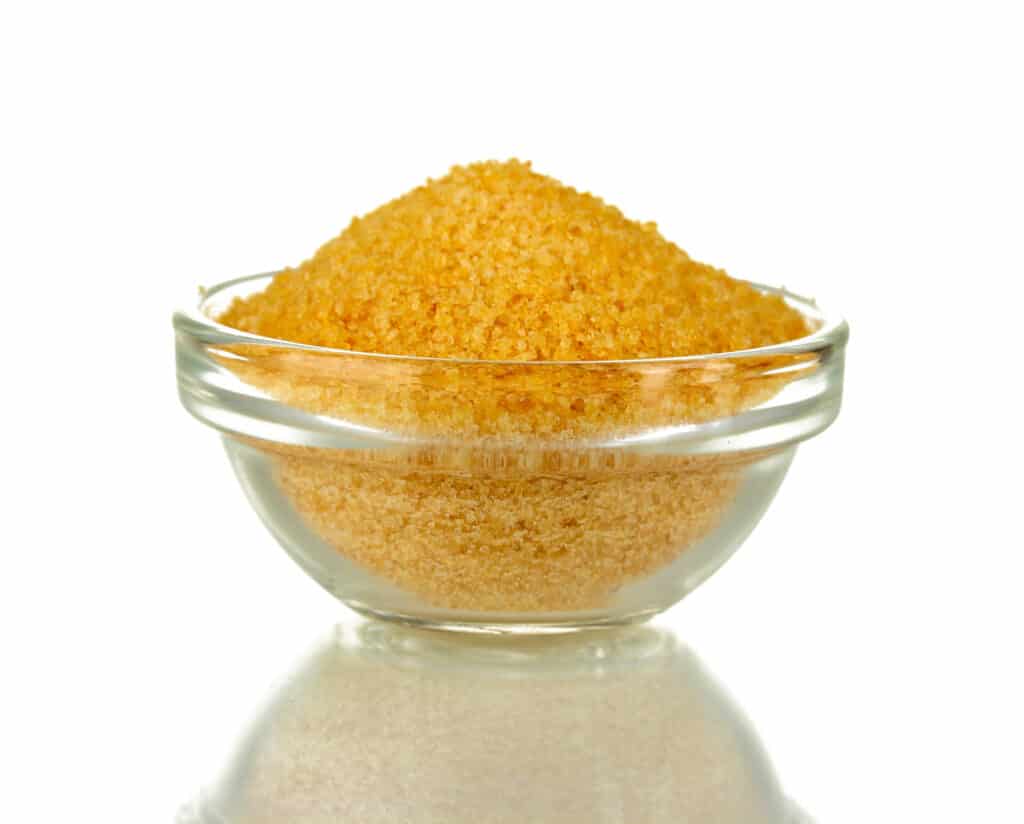
First up, we’ve got gelatin. This is the ingredient that gives jello its characteristic jiggly texture.
Gelatin is also used in other candies and sweets like gummy bears, marshmallows, pop tarts, cakes, ice cream, and some cereals. It’s sometimes also used in beer and wine and some beauty and health products like face masks, shampoos, and vitamin pills.
Nevertheless, what in the world is gelatin even made of?
Sadly, gelatin is derived from the skin, bones, ligaments, and tendons of cows, pigs, and occasionally, fish. These parts are finely chopped, soaked in hot water, then soaked in acids to release collagen, the protein that makes gelatin behave as it does. Then, the resulting liquid undergoes a couple of different processes until it becomes the powdery gelatin we know today.
All in all, not the best of starts for jello, huh? Still, we’re not done yet, so let’s look at the rest of the ingredients, shall we?
Sugar
This may come as a surprise to some people, but sugar isn’t always vegan-friendly. Some sugar manufacturers, specifically those based in the USA, use bone char to filter cane sugar and give it its distinctive white colour.
That’s not to say all sugar manufacturers do so, and not all sugar varieties are filtered using the same methods. For example, sugar made from beets and coconuts don’t need bone char filtration. Also, some sugar manufacturers use another substance called ion exchange resin to filter cane sugar, making the produced sugar completely vegan.
The problem lies in figuring out what type of sugar goes into your jello and other candies. Unfortunately, most brands don’t elaborate on their various sugar sources, so you can’t really know if the sugar in their products is vegan or not unless you directly ask them about their sugar suppliers.
Artificial Sweeteners
Occasionally, when jello companies want to make low-calorie jellos, they switch out sugar for artificial sweeteners like sucralose, maltodextrin, and, most commonly, aspartame.
While aspartame can be said to be vegan since it contains no animal by-products, it’s sadly not. That’s because it has been regularly tested on animals, which goes against vegan principles and beliefs.
And not only is it not vegan, but aspartame has also been linked to many health problems like cell damage, inflammation, digestive system disturbances, and even specific kinds of cancer. Also, ironically, its regular intake has been shown to cause weight gain.
Therefore, you should stay well away from artificial sweeteners if you care about your health and veganism.
Artificial Colours
Of course, not all jellos include artificial colours. Some use natural colours derived from beets, carrots, and so forth, but artificial colours are the ones that pose a problem for vegans.
Colours like red 40, yellow 5, yellow 6, and others are frequently tested on animals. Even when these studies and experiments don’t directly harm the animals, many vegans still disapprove of them and boycott products having those colours.
And if that’s not enough to turn you off, artificial colours have also been linked to hyperactivity among children as well as cancer when taken in high enough doses.
So, all things considered, try to avoid these colours as much as possible, even though that may be difficult as they’re used in numerous products in this day and age.
Natural Flavours
All in all, natural flavours exist are a grey area when it comes to veganism. They can have plant·based sources like fruits and spices, but they can also have animal-based ones like dairy, eggs, and meat.
While it’s unlikely for jello to have flavours from animal sources as they all taste like various types of fruits, we’ll never know for sure.
Is There Vegan Jello?
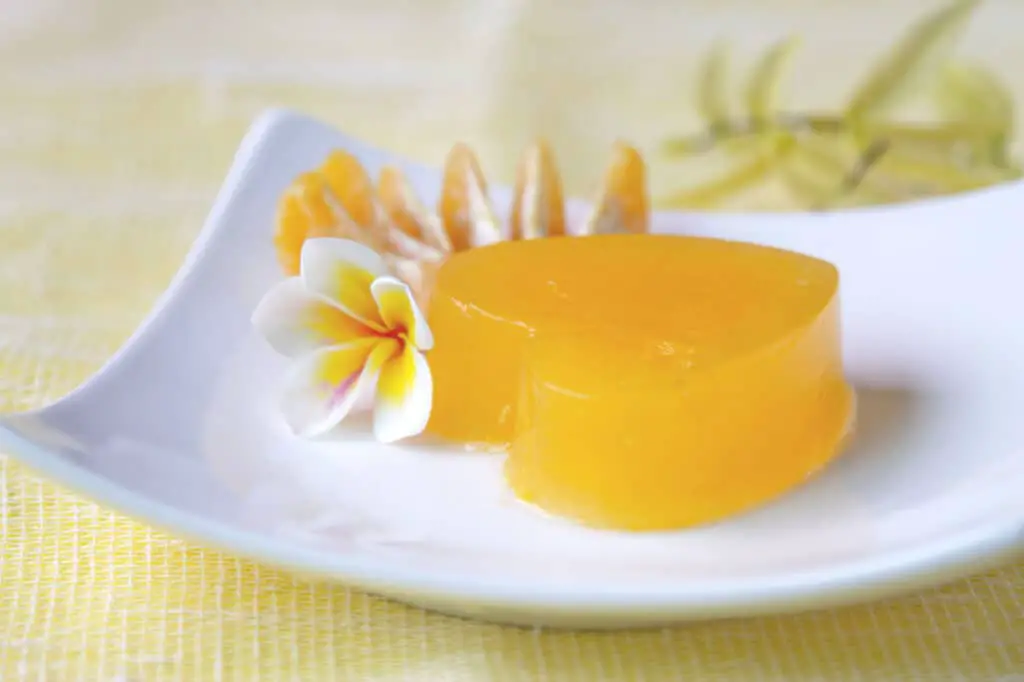
As you can see, standard jello isn’t vegan in the slightest. But, thankfully, there are some vegan jello brands out there.
These companies take out all the previous problematic ingredients and put in their vegan alternatives, especially gelatin. As a result, they end up with products pretty much identical to regular jello, just without animal slaughter and abuse.
So, you may be wondering, what did they use as a gelatin alternative to make vegan jello? We’ll tell you just below.
What Is Vegan Gelatin Made of?
Fortunately, gelatin has many alternatives, most with similar textures, tastes, and behaviours to real gelatin. Here are the most common ones.
Agar-Agar
Agar-agar is the most commonly used substance as a vegan gelatin substitute. It’s a carbohydrate derived from a type of Japanese algae, and it behaves in the same way as gelatin, where it’s liquid when it’s hot and solid when it cools down.
Since it’s utterly flavourless, it can be used to make vegan jello, jam, and marshmallows with no perceived change in their taste compared to the original ones.
Carrageenan
Carrageenan is another carbohydrate made from seaweed that’s used as a gelatin alternative. It also sets when cooled down, but the texture is on the softer side. That’s why it’s usually used in mousses, pudding, ice cream and some jellos.
Pectin
Pectin is one more gelatin alternative used in candies, jellos, jams, yoghurts, and sorbets. It’s extracted from the skins of fruits like apples, oranges, and other citrus fruits.
Xanthan Gum
Xanthan gum is made by fermenting simple sugars extracted from corn or soya beans; however, it’s a bit different from gelatin when it comes to its behaviour. Once this substance comes in contact with a liquid, it turns into a gel, so you skip the heating up and cooling down part with xanthan gum.
Still, since it’s a bit unstable, it’s not used very much unless a recipe calls for it. Nonetheless, it has its advantages and is used to make sauces, cakes, and other delicious vegan foods.
Arrowroot
Arrowroot, also known as tapioca powder, concludes our list of gelatin alternatives. It’s made from the roots of a herb, and while it doesn’t fully set like gelatin, it can still be used when a recipe calls for gelatin as a thickening agent. Sauces, soups, and gravies are such recipes.
Vegan Jello Brands
As luck would have it, there are plenty of vegan jello brands. Some of these brands include Bakol Jel Dessert, Simply Delish Jel Dessert, Lieber’s Unflavored Jel, and Jeannie’s Prebiotic Jelly Dessert.
There are also ready-made jello brands, like Cool Cups, for those moments when you want some jello but can’t be bothered to turn on your stove. All in all, you’ll find vegan jello if you look hard enough.
Conclusion
Normal jello isn’t vegan, primarily due to the presence of gelatin in it. However, there are some vegan jellos out there that taste pretty much like the real thing. So, look for those brands and have fun eating your vegan jello.




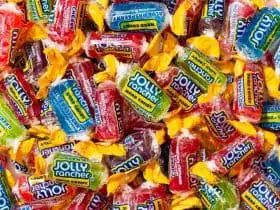

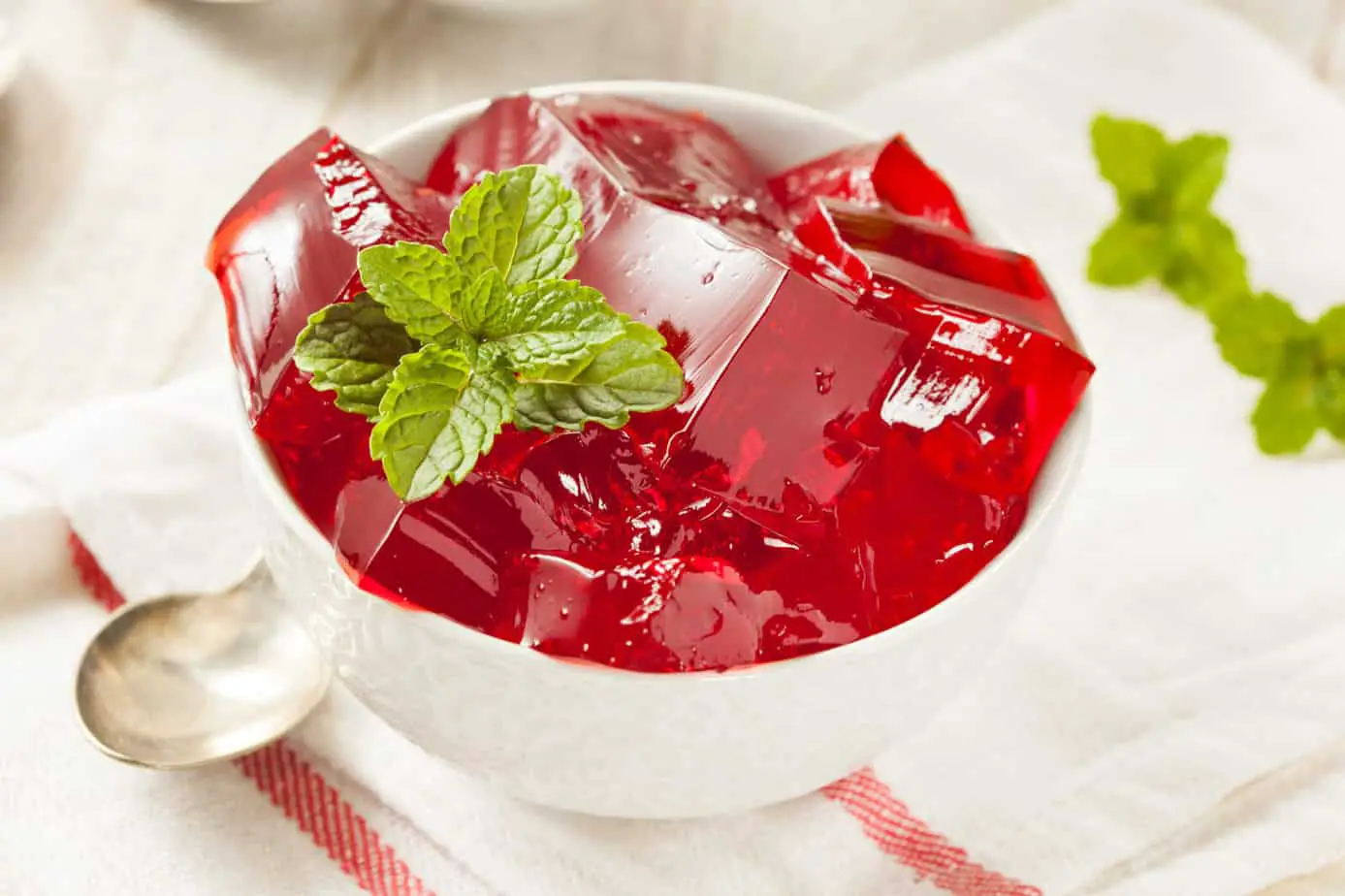

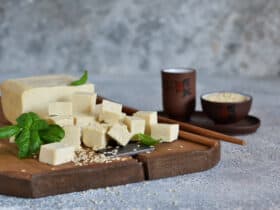
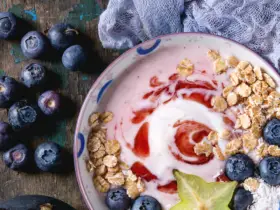
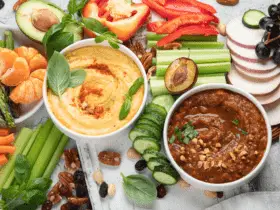

Leave a Reply